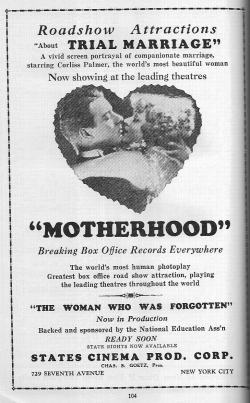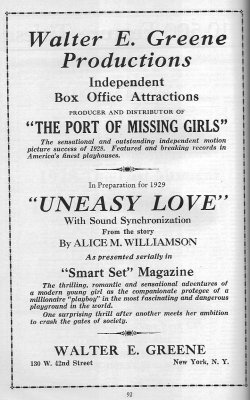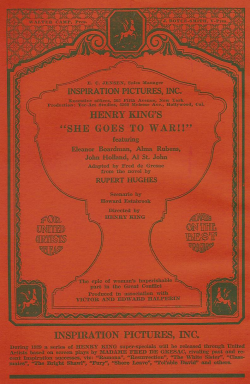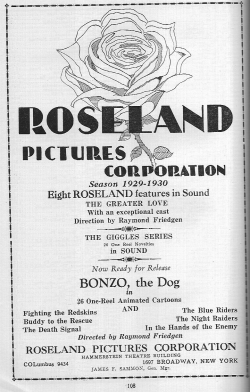Vintage: Independent Film
We think of independent films as being a relatively recent phenomenon in the history of cinema. John Cassavetes came along in the sixties, made great movies outside the studios, and eventually others followed suit. But independent film has been around all long. In fact, Hollywood exists as the center of filmmaking today because the early filmmakers wanted to get out from under the corporate thumbs of the Motion Picture Patents Company in New York, which held so many patents over so many facets of the filmmaking process, even on the raw film itself, that they essentially owned the industry on paper.
In Hollywood, major movie studios formed, and eventually they became the institution that independent filmmakers would be independent from. It was tough. The studio system was powerful, especially before their monopoly over exhibition was broken up. But there were a fair number of independent filmmakers working, especially before the advent of sound ramped up the costs and technical requirements of filmmaking.
This week, I thought we'd take a look at some early ads for independent productions. It's fascinating to me how differently movies were advertised compared to today's well oiled process. It's also interesting, as I've said before in this series, how all these titles are unrecognized today. For all the movies I've seen and read about, I've never even heard of these. Probably they're lost.


At one time, we did. Actually, even today, there is the well-recognized branding of the "Disney" movie (and the "Pixar" movie), to the point where some people use it as a generic term, mistaking Scotties for Kleenex. But the branding was clearer across the board before the break down of the studio system. After the studio system, the creative talents all went freelance, essentially, and today we're not so much talking about brands as manufacturing plants.

Actually, with this ad, the lines between independent films and studio films become blurred: note the mention of United Artists. But United Artists wasn't so much a full-fledged movie studio as a company set up for enabling films to be made and marketed outside the studios. But is a film truly independent if it's part of this organization? It's the same paradox that the movie studios themselves were film's original independents.
We contend with these gray areas today. In the 1980s and into the 1990s, Miramax was considered an indie house. But the company evolved to become a small studio, making "independent" films for mainstream budgets and all the studio concern and control that always follows big money. What's the difference? And is "Fox Searchlight" truly an independent film house if it is, when all is said and done, an arm of 20th Century Fox? What about Lucasfilm, which makes films by co-financing them with major studios? It's probably worth distinguishing between Spider-Man and The English Patient, but what about The English Patient and Primer?
 |


